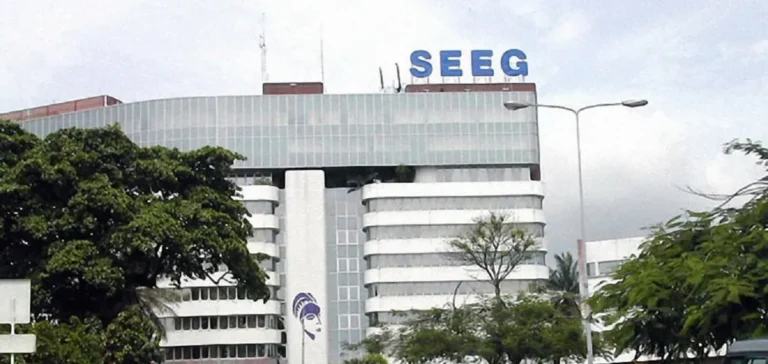The Société d’Énergie et d’Eau du Gabon (SEEG) has announced a national mobilisation against energy fraud, which is causing significant financial losses for the public utility. According to figures released by its management, between XAF30bn and XAF40bn (or between $49mn and $66mn) are lost annually due to illegal connections and tampered meters.
The situation is particularly alarming in the Greater Libreville region, where diversions reportedly represent a monthly shortfall exceeding XAF2bn ($3.3mn). SEEG Chief Executive Officer Steeve Saurel Legnongo stated that nearly 25% of the electricity injected into the national grid is not billed, jeopardising the sector’s economic viability.
A company weakened by structural losses
Already grappling with serious financial difficulties, SEEG was placed under temporary administration in August 2024. This measure, lifted in May 2025, aimed to restore the company’s budgetary balance and restructure its governance. Combating fraud has now become a priority to consolidate the recovery efforts.
An action plan has been launched, including intensified field inspections. In Libreville, 780 installations were inspected in 2024, revealing 209 cases of fraud in just three days. The company plans to expand these operations to other critical areas of the country.
Smart meters and targeted communication
SEEG is also preparing for the gradual deployment of smart meters capable of automatically detecting consumption anomalies. This technical measure will be supported by a public awareness campaign aimed at informing households and businesses of the penalties involved and encouraging compliant consumption.
This two-pronged approach — technological and educational — is designed to increase the effectiveness of efforts to reduce non-technical losses. SEEG’s management has stated that public cooperation will be a key factor in the success of the programme, which aims to restore trust between the utility and its customers.
According to projections by the Ministry of Universal Access to Water and Energy, around $3.3bn over seven years will be needed to modernise the country’s power infrastructure. Reducing fraud-related losses is therefore seen as an immediate lever to improve the sector’s financial performance.






















